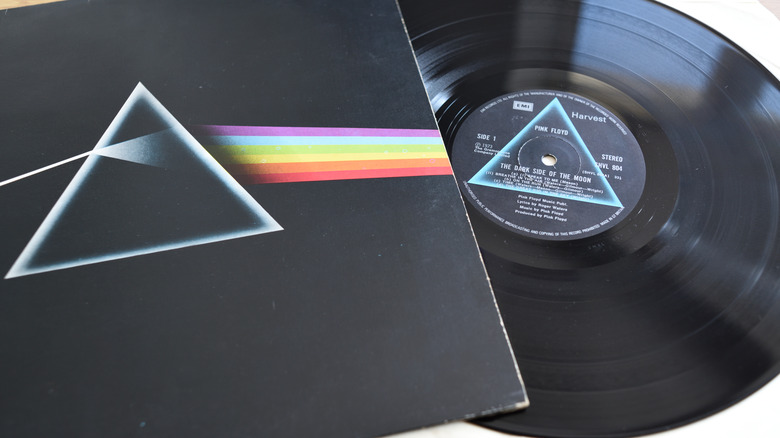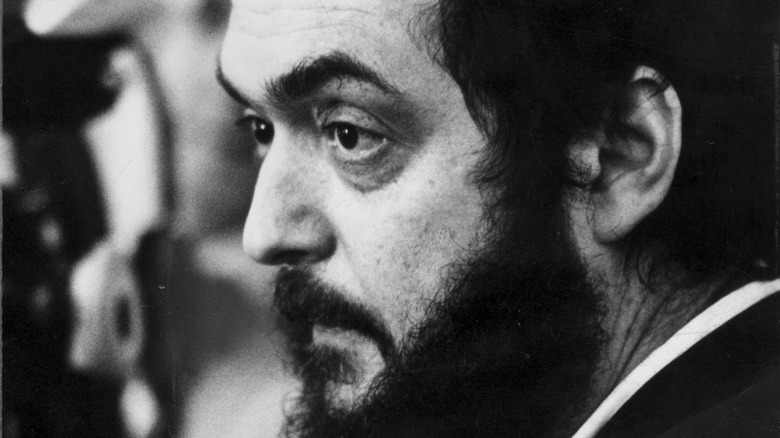Why Pink Floyd Said No To Stanley Kubrick
Say the name Stanley Kubrick to film fans, and they will immediately rattle off a series of movies: "2001: A Space Odyssey," "The Shining," and "Full Metal Jacket" to name a few, per IMDb. The man directed some of the greatest movies of all time, even though some may not like how "Eyes Wide Shut" fared. Still, he worked with some incredible actors, and he created some indelible scenes that are probably still shown in film classes. He explored the workings of people's minds and did not hesitate to use far-out imagery, like at the end of "2001" when David Bowman encounters the monolith.
When people mention Pink Floyd, they usually go on to list albums like "The Wall," "Dark Side of the Moon," and "Wish You Were Here." The band plumbed the depths of the human psyche as well as embracing the psychedelic movement when they started. So it made sense that the two would work together for a film score, right? Wrong.
So why did this matchup, which would seem like a dream one on paper, dissipate with the band declining to work with one of the foremost directors of any generation and not having their music prominently placed in a likely blockbuster movie? The likely answer, as usual with things like this, is ego.
The main issue between Pink Floyd and Stanley Kubrick
Apparently, there was an element of pettiness in the band's refusal to let Stanley Kubrick use the song "Atom Heart Mother" in "A Clockwork Orange." Per Far Out Magazine, Pink Floyd was nonplussed when the director passed them over to do a score for "2001." Possibly as a sort of nose-thumbing gesture at Kubrick, they made a song called "Echoes," which appeared on their "Meddle" album. If fans start the song at a certain point in the movie, it purportedly syncs up with the atmosphere of what one sees on the screen.
So when the director called up the group about using "Atom Heart Mother" in the 1971 film, he got a somewhat rude reception from Pink Floyd. "Right. You can't use it," was the band's response, according to Roger Waters in an interview. There was no specification if the next sound was the phone hanging up on one end or the other, but that is not a far-fetched idea.
What it all came down to was creative control. Kubrick wanted to have his hand in all aspects of his movies, including the score. The band wanted to control their music how they saw fit. So the two ideologies clashed. Both parties went their separate ways and made their marks in their respective fields. Perhaps that was for the best for all involved and their audiences.

